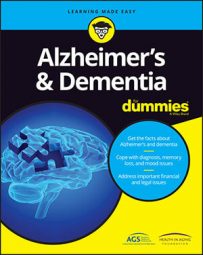A person who is diagnosed with Alzheimer’s disease or dementia should name someone as her power of attorney as soon as possible, while she still has mental capacity to do so. A power of attorney is a legal document that authorizes a person to make caregiving, financial, and/or medical treatment decisions on behalf of a person who has become incapable of making her own decisions (this person is called the principal). The person who receives this authority is often called the agent.
If you don’t have any relatives or anyone you feel you can trust to handle your legal affairs, or if, as caregiver, you feel like you can’t handle being your loved one’s agent, and no one else in your family can either, you may transfer legal authority to your lawyer so she may serve as your or your loved one’s advocate. But check your local statutes to make sure that this is allowed where you live. Some jurisdictions may consider it a conflict of interest.
An agent is required by the court to take her role in safeguarding the principal’s property and assets very seriously. The agent should keep the principal’s property and assets separate from her own, maintaining separate bank accounts and other accounts as necessary, and also provide regular, accurate accountings supported by receipts of all transactions conducted on behalf of the principal.
If your jurisdiction allows the person with dementia or Alzheimer’s disease to transfer power of attorney to her lawyer, the patient and two witnesses will be asked to sign a legal document giving this authority to the attorney. Naturally, you should make sure the attorney you choose is held in high regard, both in the community and among her peers.
Also, check with your state Bar Association and the local Better Business Bureau to make sure no complaints have been filed against the attorney. If you have any doubts at all, keep looking until you find someone you trust and feel comfortable with. The local Area Office on Aging or the local chapter of the Alzheimer’s Association may have names of reputable lawyers experienced in handling elder law issues.
How you handle your family’s legal issues depends in large part on the laws where you live. The advice of an attorney can be invaluable because she can steer you to take advantage of those laws to create the best possible legal plan for your family.

